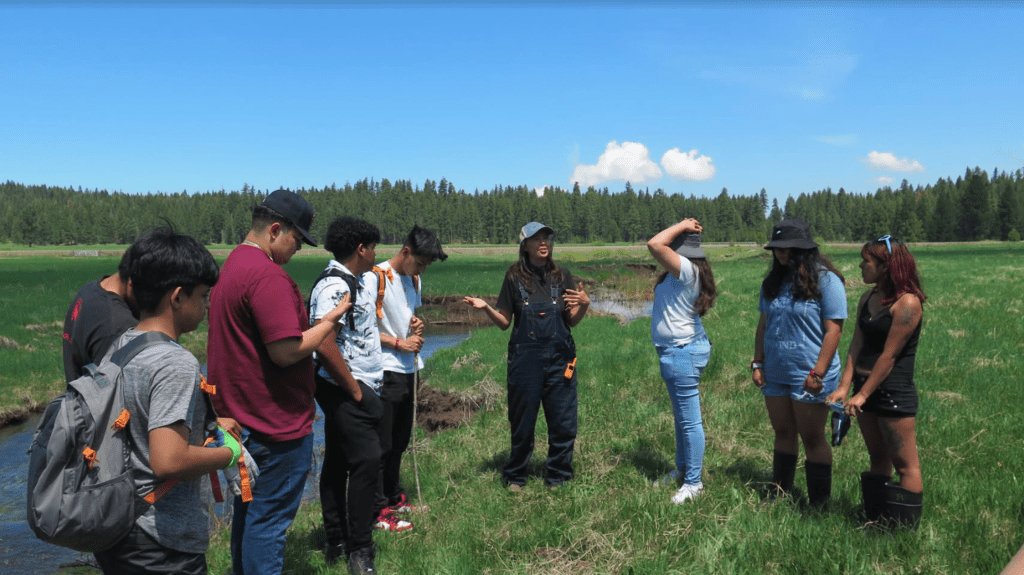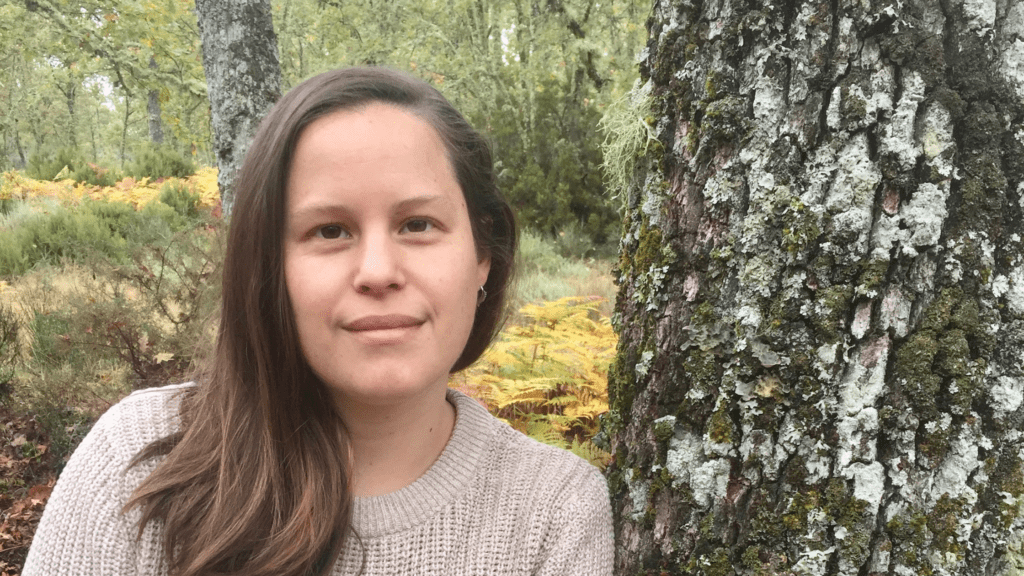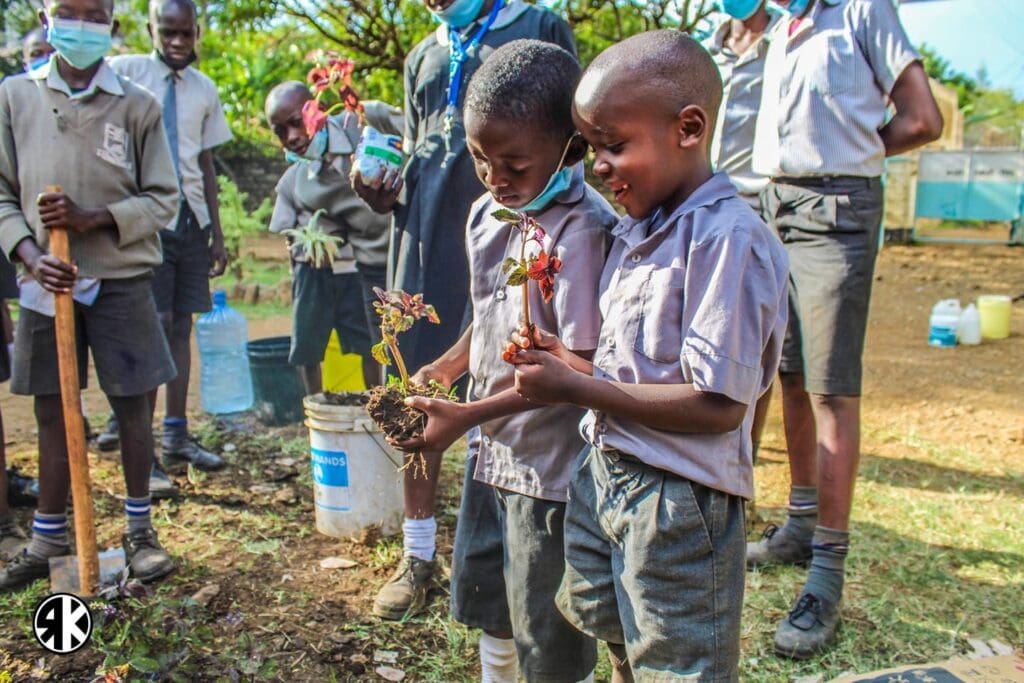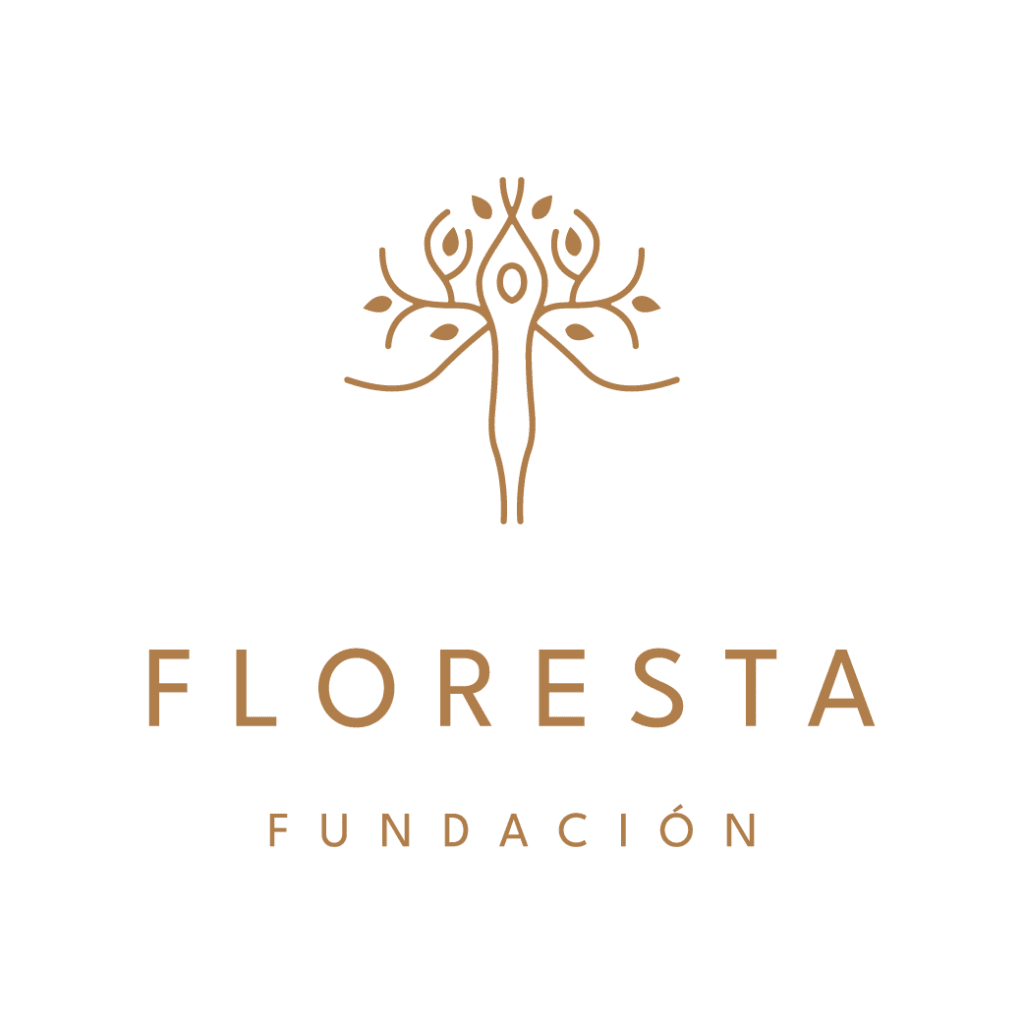
In the northwestern United States, two interconnected upland wet meadows are surrounded by densely packed Douglas Firs, Western Red Cedars, Western Hemlocks, and other common evergreen flora of the southern Cascade mountain range. A group of youth take off from a nearby parking lot and are led through a restored grassland, the surrounding woods, and along a small creek tracing through the landscape. Their guide for the day, Stasie Maxwell, an Inupiaq (Alaska Native) raised in Ashland on the ancestral homelands of the Shasta, Tekelma, and Latgawa peoples, invites them to take in their surroundings through a new lens, asking, “Have you ever been invited to see land animals, plants, rocks, and trees as relatives?”
As the Indigenous Partnership Programs Manager at the Vesper Meadow Education Program—and as a 2022 Mind & Life Contemplative Changemaking grantee—Stasie aspires to shift worldviews through contemplative practice and nature immersion. How would you treat a tree differently if you viewed it as a relative? How can gardening help us to overcome eco-anxiety? And how does the way we treat our Earth relate to how we treat our bodies? Such questions are at the root of recent Mind & Life Contemplative Changemaking projects using nature-based contemplative practices to shift worldviews, heal bodies, and combat eco-anxiety.
A day at Vesper Meadow starts with welcoming guests to the landscape, where Stasie shares its history and introduces participants to the Indigenous ecological worldview, which sees time as nonlinear and centers ancestry and relationships with the landscape. She supports Tribal partners and connects the local native community to land stewardship and restoration. Paired with her degrees in Psychology and Native Studies, a background in Qigong and meditative movement, and time spent teaching sustainable compassion alongside social psychologist and contemplative researcher Paul Condon, she’s well positioned to bridge Indigenous worldviews, contemplative practice, and land stewardship for the students joining Vesper Meadows as part of the Mind & Life-funded Healing Landscapes project.
“We exist in a dominant culture that has a dominant worldview,” Stasie says, adding that it’s critical to create time and space for the community to maintain Indigenous concepts.
At Vesper Meadow, students expand their own worldview, engage in mindfulness practices, and connect with different ecosystems and species for them to consider as relatives. Hands-on activities like seed collecting, planting willow and other native species, and restoring waterways help students connect to the land through tactile sensation and feeling.
“Because the Western worldview sees land and animals as a thing,” Stasie says, “sharing Indigenous worldview with native and non-native students is planting the seed of opportunity to re-establish relationship with the land.”

Forest Therapy in Chile
Walking in the woods can do more than help shift one’s worldview. In Chile, cancer patients are benefiting from forest therapy, a practice rooted in the Japanese tradition of Shinrin-yoku, or forest bathing, whose reported health benefits have boosted its popularity around the world.
In 2018, Gabriela Iglesias was diagnosed with breast cancer. As a clinical psychologist and contemplative practitioner, she opted to supplement conventional treatments with nature immersion. Surrounded by her home country’s beautiful forests and mountain ranges skirting the Pacific Ocean, Gabriela was inspired to integrate therapeutic walks through the Chilean forests in her cancer treatment. Her interest was buoyed by growing research pointing to the psychological and physical benefits of time spent in nature.
Ultimately, Gabriela’s treatment took less time than expected and she had a higher quality of life during treatment than anticipated—results she attributes to her natural immersion. Her healing experience inspired Gabriela to get certified in forest therapy. Soon afterward, she founded Floresta Fundación, an organization providing free forest therapy and mindfulness experiences to people with cancer, their families, and the health professionals who care for them. As a 2022 Mind & Life Contemplative Changemaking grantee, the foundation will facilitate forest therapy sessions for socioeconomically vulnerable cancer patients from public hospitals throughout Chile.
“A tumor is made up of millions of cells that behave in an individualistic manner and in complete disconnection with the rest of the body’s cells,” Gabriela explains. “Their only purpose is to grow, conquer, and exploit new territories without realizing that in reality this will eventually lead to its self-destruction.” She advocates that reflecting on the relationship between how we treat the Earth and how we treat our bodies is essential for healing at an individual and collective level.
Forest therapy practices consist of leisurely and contemplative walks that seek to establish a deep connection with nature through the activation of the senses and relaxation. Phytoncides, organic compounds emitted by trees, interact with the human immune system by stimulating the production of white blood cells responsible for identifying and destroying cancer cells in the body. Beyond protection from cancer cells, forest therapy is known to increase energy and vitality, which normally deteriorate during oncological treatments.
At a psychosocial and emotional level, forest therapy has also been shown to decrease depressive and anxious symptoms in people with cancer and chronic pain. The practice helps participants recover the awareness that we are a part of nature, reminding them how to connect with the world through reciprocity and compassion.

Contemplative Gardening in Kenya
This reciprocity is also experienced when caring for plants and trees in urban areas. In Kisumu, Kenya, grantee Mansi Kotak, CEO and co-founder of the Rahul Kotak Foundation (RKF), witnessed a large gap in knowledge among many in her community who directly suffer from climate change impacts. She set out to make climate education more accessible and practical for children living in urban communities through the Climate Action project. But she and her team at RKF soon realized that educating students on the environmental crisis also caused anxiety as they considered their own futures.
Through contemplative gardening, young students now learn how to mindfully care for the trees and plants native to the area. Mansi explains that gardening brings us into the present moment. “You cannot think about anything else when you are tending to a garden,” she says. ”You have to give your focus and your attention to the earth and to the plant that you’re working with. And for us, it is such a wonderful and therapeutic practice.”
The foundation introduces contemplative practices to students through concepts like ubuntu, the African philosophy of interconnection, and provides workshops that facilitate contemplative gardening through daily immersion in school gardens. Students also learn how the climate crisis is impacting their community and practical steps they can take to contribute to climate action.
When given their own plants and trees to care for, students are invited to answer questions like: How do we nurture these trees and look after them? What kind of care do they need and how can you provide this care in your school environment? And how are you going to take responsibility for these trees that are in your care?
Through helping students mindfully cultivate a relationship with their environment, Mansi seeks to empower them with lifelong tools to combat eco-anxiety and craft a more resilient future.
Mind & Life believes nature-based contemplative practices are vital for healing our human-earth connection. “It’s not going to be one person, one organization, or one government changing the nature of the climate problem,” says Mansi. Indeed, it’s the collective power of all these elements—and grassroots changemakers like Mansi, Stasie, and Gabriela—that will help us to rekindle and restore our reciprocal relationship to the natural world.
Suggested Links:
- Learn more about Mind & Life Grants.
- Enroll in Mind & Life’s online climate course, The Mind, the Human Earth Connection, and the Climate Crisis.
- Check out a new book by Mind & Life President Susan Bauer-Wu, A Future We Can Love: How We Can Reverse the Climate Crisis with the Power of Our Hearts & Minds.
- Listen to the Mind & Life podcast as mindful policy advocate Jamie Bristow shares his work related to Policy, Practice and Planet.
- Read diverse perspectives on strengthening the human-earth connection featured on Insights: Journey into the Heart of Contemplative Science.




